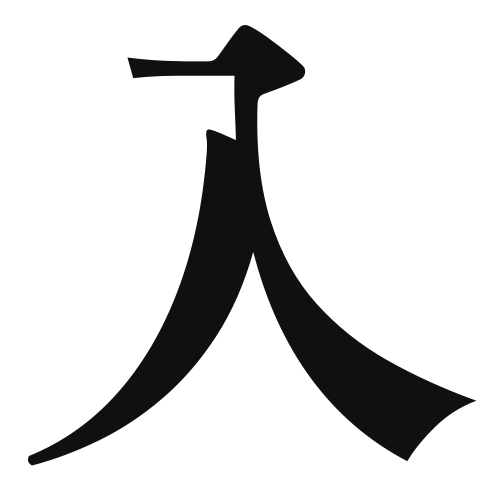1. Overview of Meaning
The kanji “入” (pronounced “nyuu” or “iru”) means “to enter” or “to insert.” It signifies the action of going into a place or putting something inside another object.
2. Formation and Radical
Formation of the Kanji: The kanji “入” is a pictogram that represents the action of entering. It visually depicts a person entering a space.
Radical: The radical for “入” is also “入,” which is used in various kanji related to entering or going inside.
3. Examples of Usage
Common Words and Phrases:
- 入る (hairu) – to enter
- 入れる (ireru) – to put in
- 入学 (nyuugaku) – entrance to school
Example Sentences in Daily Conversation:
- 学校に入るのが楽しみです。 (Gakkou ni hairu no ga tanoshimi desu.) – I am looking forward to entering school.
- この箱に本を入れてください。 (Kono hako ni hon o irete kudasai.) – Please put the book in this box.
4. Synonyms and Antonyms
Similar Kanji:
- 入る (hairu) – to enter (focuses on the action of entering)
- 挿入 (sanyuu) – to insert (often used in a more technical context)
Antonyms:
- 出る (deru) – to exit (the opposite action of entering)
5. Cultural and Historical Background
Relation to Japanese Culture: The concept of entering is significant in various aspects of Japanese culture, such as entering a home (where one is welcomed) or entering a temple (where one seeks peace).
Proverbs and Idioms:
- 入るときは、出るときのことを考えよ。 (Hairu toki wa, deru toki no koto o kangaeyo.) – Think about how to exit when you enter. This proverb emphasizes the importance of planning ahead.
